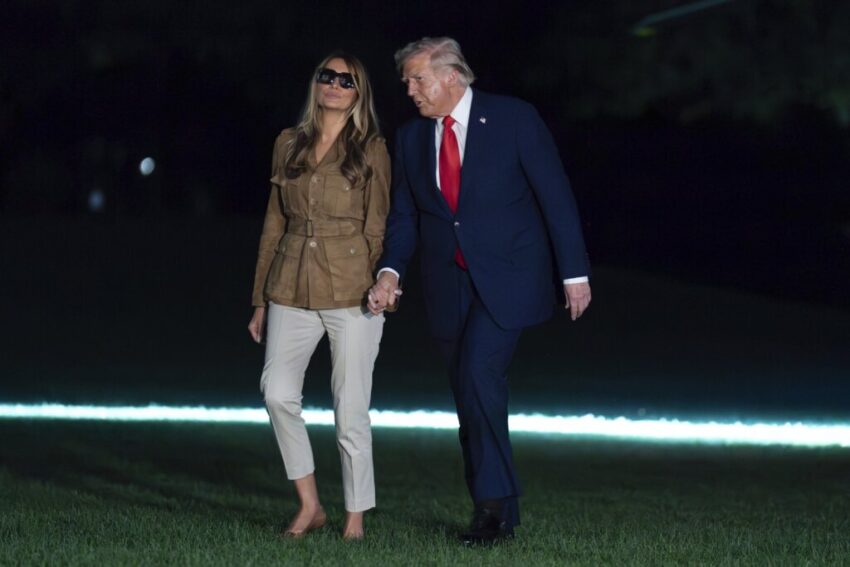WASHINGTON (AP) — President Donald Trump on Friday signed a proclamation introducing a new annual $100,000 fee for H-1B visa applications, alongside other changes to the program for highly skilled foreign workers. The H-1B program has recently come under scrutiny by the administration.
Commerce Secretary Howard Lutnick confirmed the fee amount, stating it will be $100,000 per year, and added that all major companies are on board with the change. H-1B visas are designed to bring the best and brightest foreign workers for high-skilled jobs, especially in tech sectors where qualified U.S. citizens and permanent residents are hard to find.
However, the program has often turned into a pipeline for overseas workers who are willing to work for as little as $60,000 annually—significantly less than the typical $100,000-plus salaries paid to U.S. technology workers.
Trump insisted that the tech industry would not oppose the move. “I think they’re going to be very happy,” he said.
Representatives for some of the biggest tech companies, including Amazon, Apple, Google, and Meta, did not immediately respond to requests for comment on Friday. Microsoft declined to comment.
In addition to the fee changes, Trump announced the upcoming launch of a “gold card” visa, which includes a potential pathway to U.S. citizenship. The Trump Gold Card will be available for a processing fee plus a $1 million contribution after vetting, while for companies the cost will be $2 million.
The Trump Platinum Card, an extension of this program, will be offered for a $5 million contribution. It allows foreigners to spend up to 270 days annually in the U.S. without being subject to U.S. taxes on non-U.S. income. Notably, this $5 million gold card was initially announced in February to replace an existing investor visa; it is now designated as the platinum card.
First Lady Melania Trump, formerly Melania Knauss, was herself granted an H-1B work visa in October 1996 to pursue modeling work. She was born in Slovenia.
### Background on H-1B Program
Created in 1990, the H-1B program targets individuals with a bachelor’s degree or higher in fields where jobs are deemed hard to fill, especially in science, technology, engineering, and math (STEM). Critics argue the program allows companies to pay lower wages with fewer labor protections.
Historically, about 85,000 H-1B visas per year have been distributed through a lottery system. This year, Amazon was the top recipient with more than 10,000 visas awarded, followed by Tata Consultancy, Microsoft, Apple, and Google. Geographically, California has the highest number of H-1B workers, according to United States Citizenship and Immigration Services (USCIS).
### Criticism and Concerns
Critics contend that many H-1B visas go to entry-level jobs rather than senior positions requiring unique skills. Although the program is not supposed to undercut U.S. wages or displace American workers, some employers classify jobs at the lowest skill levels, enabling them to pay less even if the hired workers have more experience.
Consequently, many U.S. companies find it economically advantageous to contract out help desk, programming, and other basic tasks to consulting firms such as Wipro, Infosys, HCL Technologies, and Tata in India, as well as IBM and Cognizant in the U.S. These firms hire foreign workers—often from India—and contract them out to U.S. employers seeking cost savings.
Doug Rand, former director of USCIS during the Biden administration, described the program as having a “split personality disorder.” According to Rand, about half of the visas go to traditional companies offering long-term employment and potential citizenship tracks. The other half go to staffing or consulting firms—some established and well-known, others essentially one-person operations that exist solely because of the H-1B program.
Rand explained, “They’re basically entering the lottery so they can hire people that they then rent out to other larger companies doing actual work. And so there’s a lot of misbehavior and chicanery in this part of the system.”
### Recent Developments and Reforms
In 2024, lottery bids for H-1B visas dropped nearly 40%, which authorities attributed to efforts to combat fraudulent practices. Previously, some applicants submitted multiple, sometimes questionable applications to unfairly increase their chances of being selected.
Acknowledging widespread fraud and abuse, USCIS announced that each employee would be allowed only one entry into the lottery, regardless of how many job offers they might have.
While critics welcomed this change, many say more reform is needed. The AFL-CIO wrote last year that although changes to the lottery were a step in the right direction, they fell short of comprehensive reform.
The labor group advocates for visas to be awarded based on the highest wages offered, rather than through a random lottery—a policy Trump also pursued during his first term.
___
Ortutay reported from Oakland, Calif. Associated Press writer Adriana Gomez Licon in Ft. Lauderdale, Fla., contributed to this report.
Copyright © The Associated Press. All rights reserved.
https://wtop.com/business-finance/2025/09/trump-to-sign-proclamation-imposing-100k-fee-for-h-1b-visa-applications-white-house-official-says/
